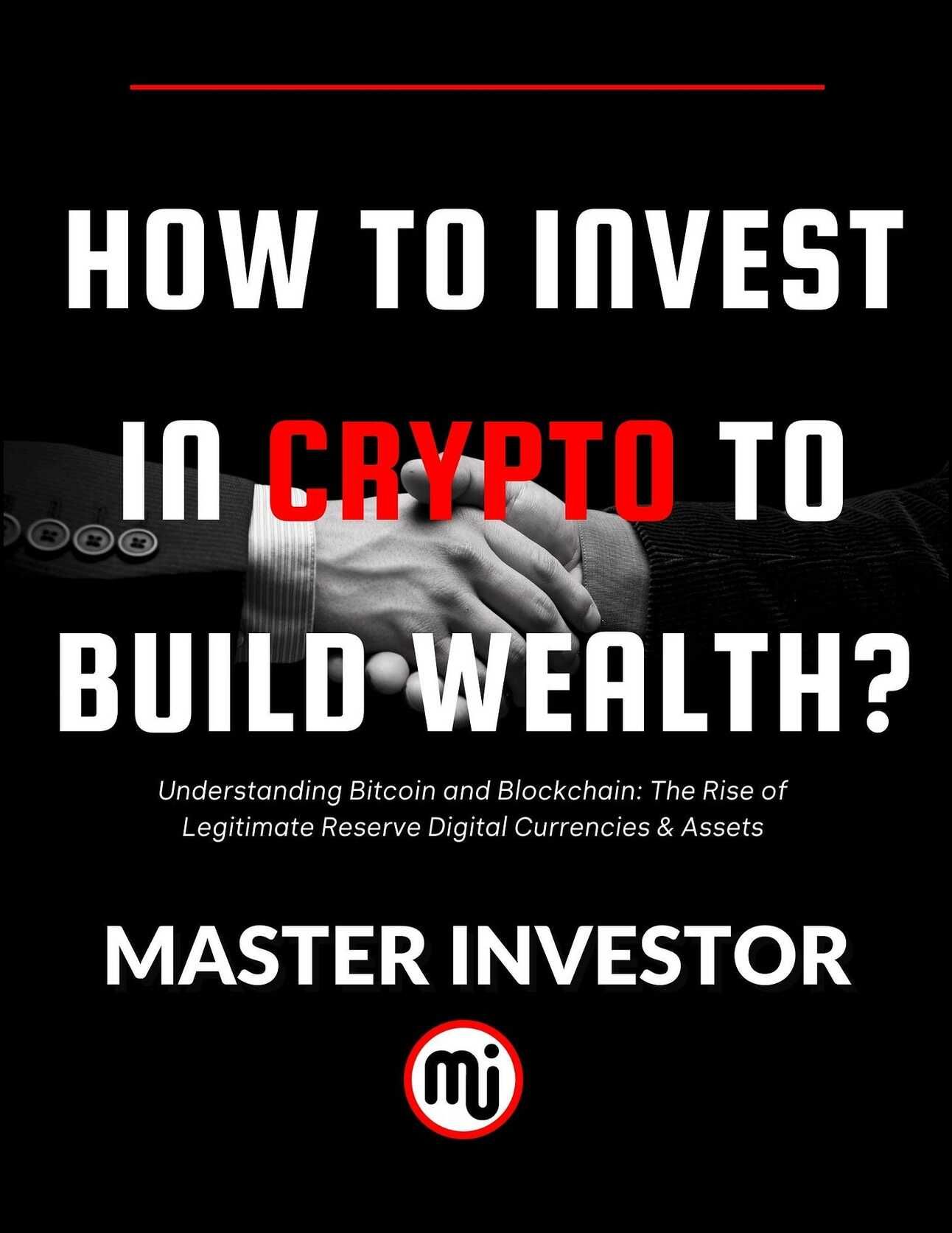
Summary:
We can survive a financial disaster by being aware of financial bubbles.
Financial bubbles come and go, therefore we need to be able to move when and how.
To "get" financial bubbles, we must invest in our financial education.
When we look closer, we will realize that the stock market and cryptocurrency are fundamentally different from each other. It will be easier for us to manage and invest in cryptocurrencies if we are aware of these distinctions.
So let's examine in more detail the main differences between the two and their significance for individuals who are new to cryptocurrency but have some expertise with traditional trading.
Are we prepared to compare stocks and cryptocurrencies?
1- Self-Response
The main distinction between equities and cryptocurrency is self-custody. When you purchased a share of stock in the past, we would receive a tangible paper stock certificate that we could keep in a safe. This gave us the ability to keep our stock in our own hands.
Buying stock in a company these days is usually done through a broker such as Robinhood, Vanguard, or Fidelity. The stock is held in custody by the broker, and we are given "rights of ownership" that let us buy, sell, and take part in dividend payments and voting.
It can take many days to transfer our equities from one broker to another, which is a laborious process. It might also have limitations and costs from the new brokerage company we have selected.
In the realm of cryptocurrencies, we can choose to maintain our tokens on the exchange, much like stocks, or we can transfer our cryptocurrency into a wallet where we can access and retain the keys. This is known as self-custody.
2- There are no outside parties engaged
Crypto holders who decide to take their cryptocurrency off-exchange are in charge of maintaining their private keys and choosing safe storage options like hardware wallets or secure app crypto wallets, in contrast to equities maintained by banking institutions.
3- Swaps, Exchanges, and Peer-to-Peer
Selling the stock within the exchange is the only way we may exercise control over our ownership rights when it comes to stock exchanges. In other words, the stock market serves as a go-between for us and the buyer.
Crypto, on the other hand, provides more possibilities. Peer-to-peer networks, decentralized exchanges (DEX), and the ability to use our cryptocurrency as collateral and borrow another cryptocurrency in its stead are available options in addition to centralized exchanges that provide a more conventional trading experience.
This gives us more freedom and agency when it comes to handling and trading our cryptocurrency holdings.
4- Liquidity and Value
Purchasing stock entitles us to a portion of the company's earnings and physical assets. In the end, the company's ability to produce things or provide customers with services determines the stock price, as does the likelihood of future growth. Because there is now a lot more data available to influence investment decisions based on historical performance, investing in stocks is now safer.
Conversely, cryptocurrencies are digital assets that are usually backed by no tangible assets (though some, such tokens backed by gold, may). Its utility, adoption rate, liquidity, and primarily speculation determine its worth.
Cryptocurrency is a more volatile asset class since it lacks actual assets.
5- Exchange Rates
The fact that trading is allowed on the cryptocurrency market 365 days a year, 24 hours a day, is one of its primary advantages.
This sets cryptocurrency apart from conventional stock markets, which have set trading hours every day of the year.
The risk of volatility is always present with this kind of continuous trading, but cryptocurrency traders reduce this risk by putting automatic stop-losses in place that trigger token sales if prices fall below a certain threshold.
6- Guidelines and Policies
Although there are strict legal frameworks that must be followed for both equities and cryptocurrencies, traditional markets have more defined boundaries than cryptocurrency. While some nations have chosen to embrace cryptocurrencies more, others have placed severe limitations or outright bans on specific cryptocurrency-related activity.
For anyone involved in the cryptocurrency market, understanding how to navigate the regulatory landscape has become crucial to maintaining compliance and managing any potential legal concerns.
The regulations governing the cryptocurrency industry are always changing and adapting to the ever-evolving sector.
7- Mining and Staking
Methods used by cryptocurrencies like Bitcoin and Ethereum to guarantee the authenticity of transactions and network security.
Their value is independent of a company's performance, unlike stocks. Rather, smart contracts are used, and consensus processes control the creation and allocation of these coins. These mechanisms occasionally provide cryptocurrency-based incentives to users who participate in the network by staking or mining.
The focus of digital currency is on initiatives and community interaction. This technique aims to encourage more individuals to become involved in the bitcoin ecosystem by holding tokens or mining blocks.

Financial Education is the education that creates true wealth
A quality education is among the top priorities for parents when it comes to their kids. For most parents, this entails providing their kids with an education that will enable them to save money, purchase a home, get a solid career, and build a diverse portfolio of stocks, bonds, and mutual funds.
If people are nodding in agreement, then they still have a lot to learn about education and the workings of money.
In actuality, the majority of education is created to get individuals ready for the industrial age, which is a world in which the old laws of money still govern.
In actuality, both the world and education have changed.
Three distinct forms of education
These are necessary to comply with the new financial regulations of the Information Age. We must go beyond the the academic and professional education to build financial freedom and true wealth.
1- Academic Education
Most people have this type of education.
The issue was that poor mindset people on the left side of the cash flow circle have no financial or business management experience. As a result, even though some people are highly paid, they spent the majority of their life struggling with money and working hard to make more.
Not being able to find total freedom because they are busy working hard for higher earned income while they could had the money working hard for them through sound investing.
Most people lack financial education to do this successfully so they rather save money. As we know savings money is loosing money in the new economy. It is a poor strategy to reach financial freedom and build true wealth.
Most people want to figure out how to invest and create when it is too late for them to grasp and adopt the wealthy content. However, it is hardly never too late to start as long as we take the first step.
When formal education falls short
As important as academic education is, the truth is that if we want to be wealthy, it won't prepare us for the actual world of reading, writing, and math.
Instead, it teaches us how to work well with others. It accomplishes this by making you adhere to a strict timetable, follow instructions, and not ask questions. Failure results in rebuke. If we inquire about the process, we will be labeled as a troublemaker.
However, academic education discourages—often with great contempt—the very traits that make us successful in business and money.
Those who performed well academically, such as impoverished dad, have an odd habit of appreciating intellectual knowledge but disregarding financial education. They appear to believe that business and investing should be simple for them just because they are PhD holders, lawyers, accountants, or physicians.
This is just a case of scholarly hubris. It is also a really costly arrogance.
2- Professional Education
Similar to academic education, professional education is crucial. The goal of education is to become financially independent by contributing to society. For instance, those who wish to become doctors go medical schools, attorneys attend law schools, pilots attend flight schools, chefs attend culinary schools, and so forth.
Most people in the middle class have some sort of professional education.
Limitations of professional education
The ironic issue is that most people believe a professional degree is the path to financial success. After all, individuals who pursue careers as pilots, surgeons, or lawyers undoubtedly earn large sums of money. Despite their high income, they are not wealthy, which is the issue. They are heavily taxed but have no understanding of how money is managed. Therefore, instead of investing in assets or starting enterprises, they use their money on liabilities.
Professional school, at most, teaches people how to be self employed and an employee, but not how to run a business and invest your money to make money; professional education teaches people how to own a job.
Financial Education
Today will need more than just academic and professional education if we are going to be successful in the real world.
It takes talking about financial literacy daily to become aware of the opportunities in front of us with the new economy that runs on debt. Learning how money works and how to make it work for us is the goal of financial education. It teaches us the history of money, how to read a financial statements, how to leverage debt, the distinction between an asset and a liability, and a ton of other things that are essential in our wealth creation process.
Schools that offer both academic and professional education do not offer that kind of financial eduction which we are retiree to have to build true wealth (total freedom). We will, at most, learn how to balance a checkbook, create a savings account, and create a budget.
To be clear, nobody is advocating for financial education to take precedence over professional and academic education. In actuality, people who have gained from both types of education must assist others who are financially literate. Without the aid of excellent attorneys, accountants, brokers, and other professionals, success is impossible.
However, the truth still stands that financial education is just as important as academic and professional education if we want to be wealthy in today's world. To succeed, we must possess financial intelligence.
Which side of the Cash Flow Circle Are Living?
Below we can see the cats flow circle we created here at masterinvestor to demonstrate the different players of the game of money. We all form part of the game of money. But not all players work and make the money the same. On the right side of the cash flow circle ⭕️ , we have the business owner and inside investor. Wealth is build not he right side of the cash flow circle. On the left side, we find the employee and self employed, they work hard for earned income and they focus on giving their money away to others to invest it for them in fake assets (Liabilities like 401K, Mutual Founds, Bonds, ETFs , etc.) because they find investing risky as they lack financial education.
Pick which side we would like to operate form all the time. It requires shifting a context in order to go from the left side to the right side.

In Conclusion
Despite their differences, both equities and cryptocurrency have significant places in the investment world.
We strongly advise us to learn about the philosophy and background of cryptocurrencies in order to fully comprehend their purpose before we decide to take a chance on the thrilling and lucrative world of investing. Although a token's value is significant, its mission and community involvement should also be taken into account.
Digital currencies are simpler to access and trade than stocks, but a well-diversified stock portfolio often offers greater stability than cryptocurrencies.
Meme coins are one type of digital currency that might only be valuable because people wish to possess them. If we are new to investing in cryptocurrencies, don't forget to exercise appropriate risk management and get competent financial guidance.
When it comes down to it, the most important factors for making decisions that fit your goals and risk tolerance are information and education.
Continue our financial education and never forget that our intellect is our most valuable asset.
(Disclaimer: This essay is meant purely for educational reasons; it is not financial advice. None of the teams, businesses, coins, or protocols mentioned in our articles are sponsored by or associated with them. It is crucial to carry out extensive study and only make investments that we can afford to lose. Seek professional assistance for individualized financial guidance.)
Start investing in high quality financial education, by reading our financial eBooks:



Lucrative resources and tools:
Follow us on Instagram.
Listen to our Podcast.
Subscribe to our Newsletter.
Follow us on Tiktok.
Purchase a business digital Course.
Like our Facebook Page.
Join our Inner Circle.
I am reading: Ways That Crypto Differs from Stocks: A Simple Guide
Comment, like, share and follow for more High Quality Financial Education Made Simple.

